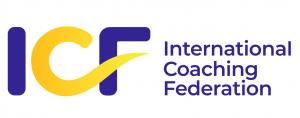Thoughts for the start of 2016 …..

As we enter a new year in the complex world in which we live, I am mindful of the amount of stress many of our clients are trying to work through in their professional lives alone, on top of the complications of home challenges and world events. Last year, a client started his coaching session by asking me to ‘stop asking questions – it takes too much energy to search inside myself for the answers’. Already, in the first week of this year, my inbox is full of messages encouraging me to set goals, get a focus, enjoy my best year yet …. and more, and it seems to me that the writers are so busy chasing towards the future, they forget to spend time enjoying the present. The NLP world is no better, being ‘stuck’ in a paradigm of ‘outcome thinking’ and a well worn sales banter about ‘living the life you want’. In fact, the ‘muddiness’ that has evolved between NLP and Coach does no favours to either field, but that debate is for another day.
Many transactional coaching models such as GROW, come from the world of sport and performance improvement and are centred around goals which start in position A, and take the coachee through a procedural process to reach position B. They assume that we know, or have some idea, about what we need and that the system will stay the same as we move in a direct line from A to B. They rely on a static environment and short termism, and why should I be surprised? They emanate from a 1980’s performance and reward driven culture. These models are a project management system for living life.
The world has changed. We are entering 2016 and a third decade for coaching, where coaching clients often don’t know what they need and want to use the coaching process as an exploration. Coaching is now full of options, rather like a bowl of spaghetti that presents exciting opportunities for untangling the many components. David Drake (2015) describes this as a narrative approach which ‘starts from a different set of assumptions, e.g., increasing people’s non-judgmental awareness of their current state, stories and actions is the necessary foundation for any change’.
I postulate that even a narrative approach is two dimensional and clients now need more creative coaching to explore multiple perspectives, take risks and align ‘self’ with the world in which we now live. They need to be facilitated through work with their unconscious and non-dominant aspects of self to discover those gifts and talents they have not yet used. They need to be open to multi-level feedback and to risk experimenting with new and evolving behaviours, capabilities and beliefs. Most importantly, they need to be helped to access what is going on, on the ‘inside’ by being present with themselves rather than referencing themselves against external expectations – which are often ‘fashions’ and ‘trends’ which change before they achieve them. They need to explore and play with the ever emergent system in which we live, the inter-connectivity of ‘self’ with ‘others’ through the concept of relational collaboration.
So…. Coaching needs to be transformational. It is made up of multi-faceted lenses through which to transcend the narrative and the discourse, to re-engage with learning through playfulness, to converse with a light touch rather than be the imposed, goal orientated and stress inducing conversation that New Year goal orientation leads clients to experience.





